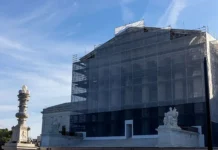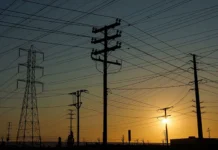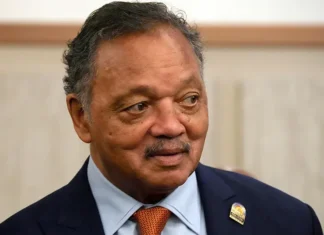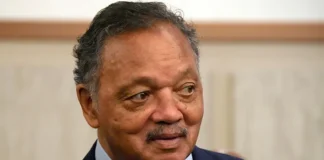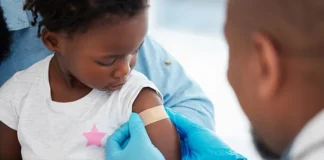
by Jamila Hodge
Five years ago, a police officer murdered George Floyd by kneeling on his neck for nine minutes, 29 seconds.
We might never have known about it without a fearless community member and her phone. Otherwise, George Floyd would’ve been lost among the 1,159 people killed by police in 2020.
At that moment, I was barely two years removed from my career as a federal prosecutor. In Washington, D.C., where I worked, prosecutors hold jurisdiction over federal and local crimes. For several years, I served as a community prosecutor, where I worked in police precincts. I got to know officers as dedicated individuals, but also, crucially, as part of a faulty system.
I became a prosecutor believing I could effect change. But I learned that the foundation of a racist punishment framework was hard to shake and that a justice system, originating in slavery, designed to control and oppress Black people, would — and does — continue to do that.
So I was shocked to see how one injustice could inspire action. Americans poured into the streets throughout 2020, despite the persistence of COVID-19; as many as 26 million protested. State and local governments enacted a wave of police reforms. Corporations and their foundations promised nearly $50 billion for racial justice initiatives.
Groundbreaking investments in community-held public safety solutions excited me the most. This movement had been taking shape for years, but suddenly cities, states, and eventually the federal government paid attention to the proof of effectiveness, combining for investments of more than $1 billion in recent years.
Black history is not my job, but it is a passion. Everything I have learned about the civil rights struggle has taught me that any significant advancement prompts a fierce backlash. Which brings us to today.
We will feel this pain most acutely.
This White House administration is drowning us in a flood of regressive executive orders and federal actions. Many will harm Black communities. From sweeping measures to eliminate DEI initiatives — essentially resegregation — to the neutering of civil rights protections to proposed legislation to cut Medicaid, we will feel this pain most acutely.
Public safety has been my work for the last 20 years, so I was devastated when, just weeks ago, the Department of Justice illegally canceled 371 grants. These awards were made to more than 200 community-based organizations, health care institutions, and municipalities working to prevent violence and save lives outside of policing, prosecutions, and prisons.
We need state and local leaders, as well as philanthropy, to step up.
Our history of systemic racism has ensured that the drivers of violence — poverty, unhealed trauma, lack of access to good jobs, quality education, and health care — proliferate and sustain in Black communities.
This administration will not reinstate these dollars, so we need state and local leaders, as well as philanthropy, to step up because these programs save lives. Black lives. Many models of community violence intervention — often featuring outreach workers connecting with those who have committed violence and those who might — were thriving. Evaluations have shown drops in violent crime ranging from 25-70%.
Restorative justice is a process equally vital, addressing harm to avoid the legal system — especially for youth — while bringing healing and resolution for survivors. Participants who choose restorative justice report satisfaction rates ranging between 80% and 90%.
Our movement is struggling for oxygen at this very moment, a systemic knee on our neck.
My organization was one of the 200. The loss of funding is crushing, but the impact goes further. We were passing on hundreds of thousands of dollars to innovative startup organizations saving lives in their communities. They show up at homicide scenes to support families, provide resources to youth exposed to violence and trauma, and much more. They were counting on this money to grow and address the drivers of violence they experience every day.
The timing couldn’t be worse. Violence surges every summer, as surely as the temperature rises. But it will be worse this year because of the DOJ’s actions. My LinkedIn feed is a steady scroll of layoff announcements and intelligent, impassioned people seeking reentry into our field because they know that our communities need this work.
This administration will blame the rise in crime on the disinvested communities most ravaged by violence — rather than take responsibility for ending the life-saving measures that made violence intervention and prevention tangible. The rise will be the impetus for pushing the money “saved” into the punishment system.
We will end up with more police emboldened by actions and executive orders that signal their “unleashing.” That can only strike fear in our communities, especially when police killings have increased every year since the reforms inspired by the 2020 uprising.
Our movement is struggling for oxygen at this very moment, a systemic knee on our neck. We expect this administration to ignore our pleas for relief, as an officer did to George Floyd. But there are mayors, state legislators, and governors, as well as countless philanthropists, bearing witness to this grave injustice. Save Black lives now. We’re begging you.
Jamila Hodge is the chief executive officer of Equal Justice USA, a national organization transforming the justice system through community-centered responses to violence that save lives and heal communities. She brings to EJUSA a dozen years as a federal prosecutor, followed by several years launching a program to support progressive, change-making prosecutors across the nation. Her goal is to establish EJUSA as a leader in building solutions to violence outside of the criminal legal system.


